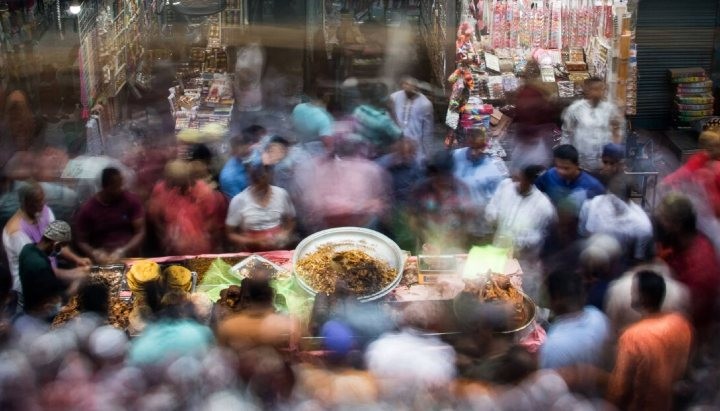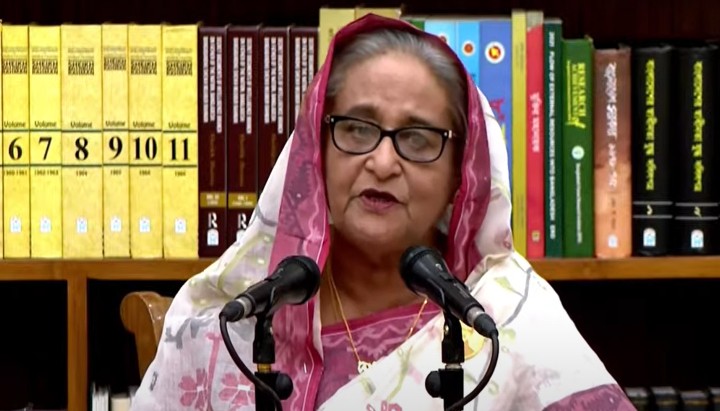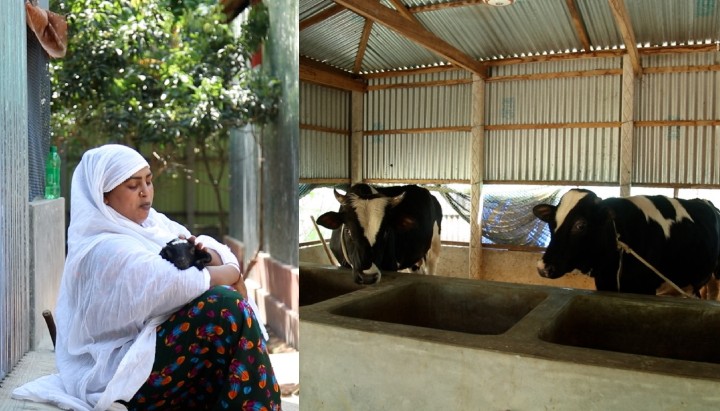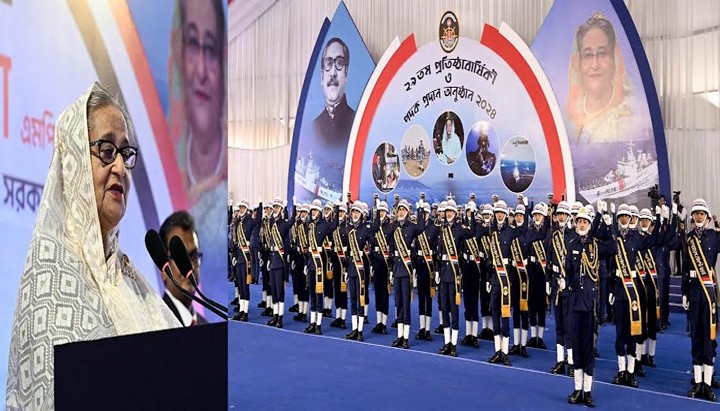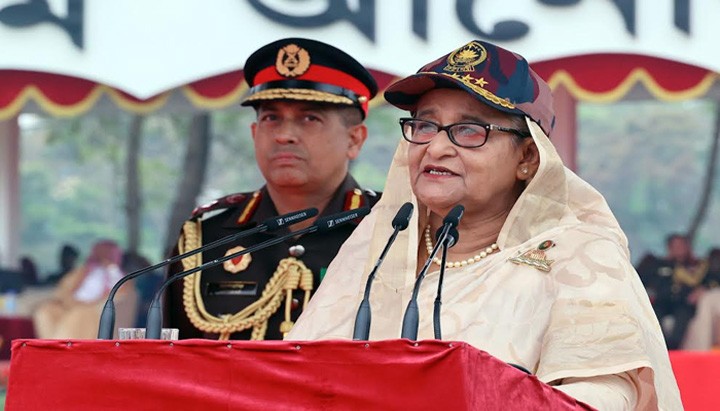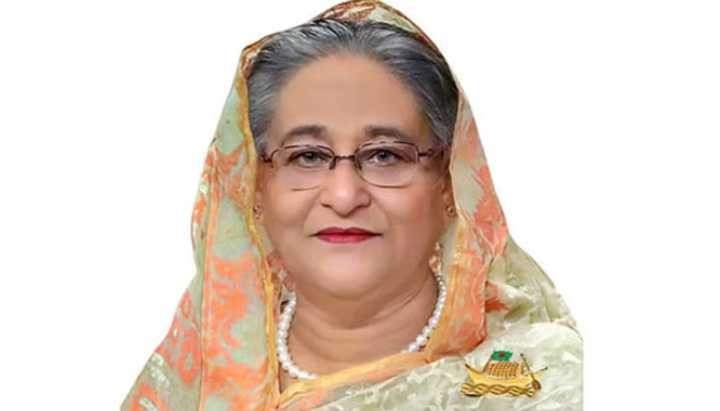Bangladesh is emerging as a dynamic, fast-growing market.
This growth is driven by a large domestic consumer market, a rapidly expanding
middle and affluent class, and an impressive digital adoption rate. The country
is now home to more than 2,500 startups, with about 200 more being added each
year, focusing on a wide range of industries, including financial technology
(fintech), logistics and mobility, and e-commerce. And there remains a thriving
group of traditional companies and conglomerates that have for well over a
decade played an important role in domestic and global supply chains for
textile, apparel, light manufacturing, and aquaculture.
Despite this noteworthy commercial activity, Bangladesh is
largely untapped, even as the country continues to show signs that it can be a
powerful marketplace. To offer some insight about these economic prospects, we
have assessed why Bangladesh is a robust opportunity for domestic companies and
a potential investment benefit for venture capitalists and private equity
players as well as a possible strategic foothold for expansion by
multinationals—alone or in partnerships with local companies.
To provide some clues for how to succeed in Bangladesh, we
have analyzed the reasons behind the blossoming of a set of growing mid- and
large-sized businesses that we call emerging champions. These are companies
with outsized total shareholder returns (TSR) driven by profitable growth and a
willingness to forego dividends to fuel further expansion.
Economic Growth and
Landscape
With an average annual GDP growth of 6.4% between 2016 and
2021, Bangladesh has outpaced Asian peers, such as India, Indonesia, and
Philippines, and has performed significantly better than the global average of
2.9%. The country’s GDP per capita was ~$2,800 in 2022—already higher than
India’s. And at its current growth rate, Bangladesh is on track to become an
upper-middle-income country (at least ~$4,000 GDP per capita) by 2031.
Bangladesh has proven resilient to global economic shocks.
In 2020, Bangladesh GDP rose 3.4%, making it one of the few Asian economies to
have grown during the COVID-19 pandemic. Similarly, during the 2007–2009
worldwide financial crisis, the country’s annualized growth rate was 5.5%,
compared to a global average of 0.4%.
Buttressing Bangladesh’s prospects is its extremely active
domestic consumer market, which accounts for nearly 70 percent of GDP and is
rapidly expanding due to a growing middle and affluent class. By 2030, this
group of well-to-do consumers could encompass more than 34 million
Bangladeshis, or about 15% of the population.
Fueling the gains in consumer spending is a digital economy
that is expanding rapidly. Between 2008 and now, Bangladeshi mobile cellular
subscriptions jumped to upward of 180 million—making it the ninth largest
mobile market globally—while population covered by internet services grew from
1% to about 90% of the country’s population. Not surprisingly, digital
financial services are clocking daily transactions worth $200 million. More
than 120 million people have already used services from these online
applications. In addition, a new digital banking and transactions platform,
Binimoy, backed by the Bangladeshi government, is expected to increase cashless
transactions from about 15% to nearly 60% over the next 20 years, and provide
nearly 90 percent of the population with access to bank accounts, credit, and
other fintech services, putting yet more money into circulation in the economy.
This startup landscape has attracted over $880 million in
funding over the last decade, with about 90% of these investments coming from
outside of the country, and has created more than 1.5 million jobs. In that
time, Bangladeshi mobile financial services startup bKash became the nation’s
first unicorn when SoftBank acquired a 20% stake in November 2021. Surging
toward unicorn status is a wave of startups, including ShopUp, a B2B commerce
platform for small businesses, online grocer ChalDal, and ridesharing firm
Pathao. And the government is promoting startups through a flagship $100
million venture capital fund called Startup Bangladesh.
The combination of startup activity and expanding domestic
VC streams has piqued the interest of large international VCs. According to the
United Nations Conference on Trade and Development, FDI inflows to Bangladesh
primarily from multinationals rose by nearly 13% in 2021 to $2.9 billion and
held at around that level in 2022, even as slowing GDP gains and recession
worries were being felt across the globe.
Bangladesh, like many other emerging economies, is facing
ongoing challenges that include limits on capital liquidity, foreign exchange
risks, and inflationary pressures. But the government and Central Bank are
taking measures to stabilize the situation and regulatory reforms are being
considered to improve the business environment.
Four Attributes of
Emerging Champions
Perhaps the best way to assess which business
characteristics and culture are necessary to thrive in Bangladesh is to examine
its emerging champions. This exercise is valuable for virtually any type of
company seeking a strong presence in Bangladesh—whether a domestic startup or
an established and expanding business, a VC, or a multinational setting up shop
or forging a partnership.
The emerging champions that we identified have an annual
revenue range of $300 million to $3 billion and boast an impressive ten-year
average TSR of 16%, better than the S&P Global 1200 (15%), the Asia 50
Index (14%) and MSCI Emerging Markets (10%). They include multigenerational
enterprises, tech startups, purely domestic companies, globally diversified
businesses, single-sector specialists, and conglomerates.
Emerging champions have four crucial characteristics in
common.
Optimism. First is their optimism about Bangladesh
and the desire to thread themselves deeply into the fabric of the country’s
economy and people. They are overall very bullish on its future and their
ability to grow even if the economic volatility increases. Much of this
resilience stems from relatively consistent success in recent years.
Their optimism has led emerging champions to combine the
traditional focus on increasing TSR with strategies that support positive
social results in the communities that they operate in. These approaches improve
the companies’ reputations, which encourages customers to trust these outfits,
and at the same time expand the potential customer base and organically grow
the business. More than 50% of emerging champions in Bangladesh embed societal
impact in their company’s vision or mission. Typical of this are bKash, which
uses mobile technology to foster financial inclusion for more than 60 million
underserved Bangladeshis, and BRAC Bank, which offers noncollateralized loans
to more than 1 million small and midsized businesses.
Beyond social improvements, some emerging champions also
want to advance the customer experience through personalization. Although deep
digitization and data access are still relatively nascent in Bangladesh, a few
ambitious efforts are pointing the way to a view of the not-too-distant future.
For example, ShopUp enables small and medium-sized businesses to search for
products through AI-based voice commands to provide services for business
owners with varying levels of literacy. This offering has quadrupled ShopUp
sales conversions.
Increased Labor Productivity. Second,
Bangladeshi emerging champions have increased their labor productivity
significantly. As recently as a decade ago, this was a significant challenge
for Bangladeshi companies. In 2010, Bangladesh’s output per worker was just
$8,000, about one-quarter that of the average among low- or middle-income
countries (LMICs). Today, it stands at $12,000, a 56% increase in twelve years,
compared to global average and LMIC improvements of 22% and 36%, respectively.
Square Pharmaceuticals is emblematic of these types of productivity gains. The
company has boosted productivity significantly through economies of scale
driven by limiting the number of product offerings in order to simplify operations
and adopting new automation and optimization programs. With these basic
technological enhancements, Square’s new factories are three times as efficient
as the older plants.
International Seal of Approval. Third,
Bangladesh’s emerging champions generally have the international seal of
approval. Since many of the most prominent companies in Bangladesh have already
received modest capital injections from global banks or, in some cases, VCs,
they have been vetted for their financial health and governance transparency.
This has resulted in a group of Bangladeshi companies of international
quality—already prepared to do business and form partnerships with companies
around the globe.
One of the biggest advantages of international approval is
the beneficial capital channels that it opens. This manifests in relatively low
indebtedness and the ability to get funding at low rates—and opportunities for
investors or MNC partners to help these companies develop strategic growth
plans based on a disciplined used of debt. Listed companies in Bangladesh have
leveraged debt funding at a far lower level than other nations. The median
debt-to-capital ratio for the S&P 1200 stands at around 42%, compared to
about 27% for Bangladeshi companies. This demonstrates the untapped capital
Bangladeshi companies can leverage by raising more debt.
In terms of equity, Bangladeshi firms are using their
positive global rankings to leverage equity capital from overseas investors and
VCs. For example, bKash’s Softbank investment has been mirrored by capital
influxes from Ant Group, the Bill & Melinda Gates Foundation, and the World
Bank’s International Finance Corporation. And in some cases, positive standing
among international companies have led to technology contributions for Bangladesh
firms from overseas outfits. For instance, Summit Group recently completed
construction of two heavy fuel oil plants in less than a year, both powered by
engine technology from long-standing Finnish partner Wärtsilä.
Ecosystem Building. Fourth, support for ecosystem
building. Like so many companies around the world, Bangladeshi companies have
warmed to the idea that ecosystems—suppliers, customers, technology partners,
bankers, among others—are necessary to continue fast-paced growth.
In Bangladesh, these ecosystems are emerging in varied ways.
For instance, some companies are building vertically integrated end-to-end
operations to eliminate potential disruptions from overreliance on traditional
suppliers and distributors. A good example is PHP Family, a leading Bangladeshi
steel conglomerate. The company has created an ecosystem of rolled iron
suppliers and local welders, foundries, and distributors to handle everything
from materials sourcing to producing finished products for customers. PHP gives
credit and loans to ecosystem participants to ensure they can, without
interruptions, provide PHP with sufficient inventory to meet demand.
The Path for Multinationals and Investors
These four dimensions of emerging champions provide a
foundation for companies and investors eager to begin or fund ongoing
operations in Bangladesh. Companies that have these attributes or have the
potential to develop them are the best options for partnerships, new businesses
or development money. Moreover, as we analyze Bangladesh’s prospects, we
believe that multinational corporations (MNCs), asset management firms, and
venture investors will play an increasingly significant role in the country’s
economic and private sector growth and the emerging champions playbook should
serve as an essential guide.
During the next few years, these trends involving outside
companies and backers will likely take center stage:
- International
private equity will become increasingly important to the Bangladesh
business landscape, in part to meet Bangladeshi companies’ liquidity
requirements but also to help emerging champions adopt global operational
and governance practices. Private equity firms will also play a key role
in linking emerging champions to international ecosystems.
- MNCs
will be able to partner with local companies sufficiently sophisticated to
undertake and invest in complex R&D efforts and capable of deep local
consumer insights. These R&D programs can be a starting point for an
MNC to test market products and services in partnership with emerging
champions that fully understand the nuances of a homogenous population and
have a strong commitment to ethical practices.
- We
expect that with its current trajectory, augmented by regulatory reforms,
Bangladesh will produce many more billion-dollar companies in the next 10
years. Hence, this is an opportune moment for MNCs and asset managers to
test the market with the emerging champions.
Considering the growth leaps that Bangladesh and its private
sector have enjoyed even during periods of stress and volatility in the last
decade and a half, the country has bright prospects. With smart regulatory and
economic support at home; positive geopolitical relationships; and funding,
capability building, and strategic support from outside investors and MNCs,
Bangladesh can continue to build on its gains.
Source: BCG


